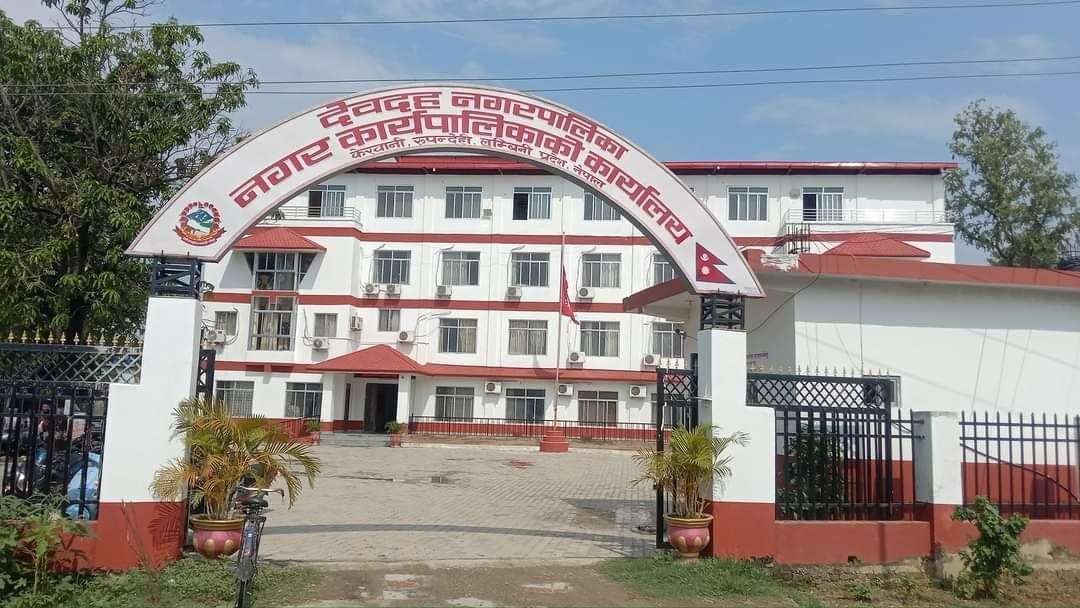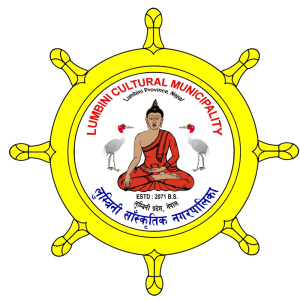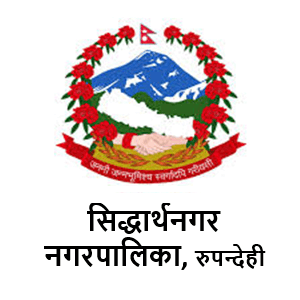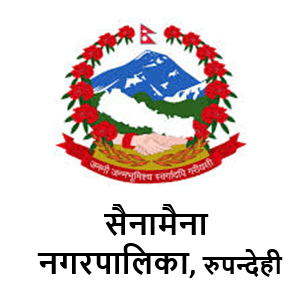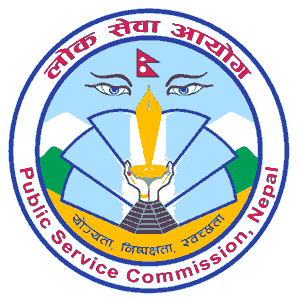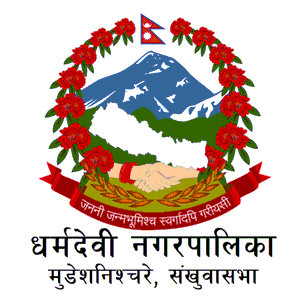Overview
Devdaha Municipality (Nagarpalika - देवदह नगरपािलका, रूपन्देही)is situated in the northeastern region of Rupandehi District, Lumbini Province. Located approximately 35 kilometers northeast of Lumbini, the birthplace of Gautama Buddha, Devdaha is renowned as a historical site and is traditionally considered the maternal home of the Buddha.
Formerly part of the ancient Koliya kingdom, the area was officially declared a municipality by the Government of Nepal on 25th Baisakh 2071 BS, merging the former Devdaha and Kerwani Village Development Committees (VDCs). Later, according to the Nepal Gazette published on 27th Falgun 2073 BS, the former Siktahan VDC was also incorporated, forming the present-day Devdaha Municipality.
Highlights of Devdaha Municipality
| Key Area | Details |
|---|---|
| Province & District | Lumbini Province, Rupandehi District |
| Geographical Location | 35 km northeast of Lumbini |
| Total Area | 135.95 sq. km |
| Total Population (2078 BS) | 72,457 residents across 17,300 households |
| Total Wards | 12 administrative wards |
| Historical Significance | Birthplace of Mayadevi, Yashodhara, part of the ancient Koliya kingdom |
| Notable Tourist Sites | Bhawanipur, Dev Daha, Khayardanda, Rohini River, Pakari Tree |
| Main Festivals/Fairs | Ram Navami Mela at Bhawanipur |
| Active Homestays | The Magar community in Ward No. 6 operates Ujeri Homestay |
| Ecotourism Sites | Wetlands in Ward No. 9 with birds, flora, and a serene environment |
| Public Parks | Om Shanti Park, Gautam Buddha National Park, Smriti Park, etc. |
| Playgrounds | Devdaha Cricket Ground, Bhawanipur Playground, Panwari Ground, etc. |
| Community School Teachers | 159 total positions across levels, including federal and local grants |
| Educational Reforms | Local textbooks (Grades 1–8), school mergers, and active child clubs |
| Municipal Sports Programs | Mayor Cup, Deputy Mayor Cup, President Running Shield |
| Health Infrastructure | 12 facilities: 1 hospital, 2 health posts, 1 urban health center, others |
| Free Health Services | Blood donation, safe delivery, essential medicines, and maternal care |
| Women & Children Programs | Entrepreneurship training, gender awareness campaigns, and sign language |
| Cooperative Development | Devdaha Cooperative Network operational; market inspections in place |
| Agricultural Support | Subsidies on fertilizer, seeds, irrigation, and plastic tunnels |
| Veterinary Services | Artificial insemination, free vaccines for livestock |
| Skill Programs for Farmers | Field training, farmer schools, orchard & soil camps |
Population and Geography
As per the 2078 BS national census, Devdaha Municipality has a total of 17,300 households and a population of 72,457. The municipality spans an area of 135.95 square kilometers and comprises 12 administrative wards.
Geographical borders include:
-
East: Nawalparasi District
-
West: Butwal Sub-Metropolitan City and Tilottama Municipality
-
North: Palpa District
-
South: Omsatiya Rural Municipality
Historical and Cultural Significance
Devdaha is home to several heritage and religious sites. These include:
-
Pakari Tree
-
Kanyamai Temple
-
Bairimai Temple
-
Dev Daha (Sacred Pond)
-
Yashodhara Park
-
Bhawanipur
-
Gautam Buddha National Park
-
Smriti Park
-
Khayardanda
-
Mathagadhi Fort
The municipality advances its developmental efforts under the guiding slogan:
“Education, Health, Agriculture, Tourism, and Infrastructure – The Foundation of Prosperous Devdaha.”
It is a municipality with promising potential in agriculture and industry, known for its cultural richness, availability of natural resources, and proximity to Lumbini.
Administrative History
Devdaha Municipality was officially declared on 25th Baisakh 2071 BS by incorporating the former Devdaha and Kerwani VDCs. Operations began formally on 5th Jestha 2071 BS from Ward No. 4, Kerwani. On 27th Falgun 2073 BS, the former Siktahan VDC was added, expanding the municipality to 12 wards.
Devdaha lies 35 kilometers from Lumbini and shares boundaries with Sunwal Municipality (east), Butwal Sub-Metropolitan and Tilottama Municipality (west), Mathagadhi Rural Municipality of Palpa (north), and Omsatiya Rural Municipality and Ramgram Municipality (south).
Tourist Attractions within Devdaha
1. Bhawanipur
Located in Ward No. 4, Bhawanipur is believed to be the ancient capital of Devdaha. The site features a stone pillar, a statue of the Sun God, and an ancient well. The pillar is believed to have been erected by Emperor Ashoka.
Bhawanipur is traditionally regarded as the birthplace of Mayadevi (mother of Buddha), Prajapati (his aunt), and Yashodhara (his wife).
Excavations by the Department of Archaeology and Lumbini Development Trust have revealed ancient coins, pottery, and wall remnants. A grand religious fair is held here annually on Ram Navami.
2. Pakari Tree
In Ward No. 8, near Pakadi village, the sacred Pakari tree stands approximately 30 meters tall with a circumference of 30 meters. Unique features include its evergreen nature, avoidance by birds like vultures, and its symbolic elephant-repelling aura. Locals regard it as a divine, supernatural, and possibly Buddhist-era tree.
The nearby village is named after this tree. At its base is a trunk-shaped formation resembling Lord Ganesh, which the locals worship.
3. Rohini River
Flowing through Ward No. 9, the Rohini River is a historically sacred river associated with ancient legends involving Rohini, the daughter of Daksha Prajapati.
The river is believed to have originated from where Rohini hid near Satyawati Lake in Palpa. This river holds significant religious importance and is closely tied to the region’s ancient spiritual heritage.
4. Mathagadhi
Approximately 200 years ago, during British attacks on Nepal, Nepalese soldiers used the strategic hilltop fort of Mathagadhi in Devdaha for defense.
The remains of its protective walls and battleground can still be visited today. Mathagadhi also offers panoramic views of Rupandehi, Palpa, and Nawalparasi. A stairway route is currently under construction to improve access.
5. Dev Daha
Located within Ward No. 9, in the northern area of Ghodaha, inside the Pragati Community Forest, Dev Daha is a sacred pond where sages of the Buddha era are believed to have taken a bath.
Its colorful blooms—white, red, and pink—have led Buddhist traditions to recognize it as "Mangala Pushkarini." The name “Devdaha” for the municipality is derived from this sacred site.
6. Kanyamai and Bairimai
Situated approximately 1.5 km south of Shitalnagar Chowk in Ward No. 7, the Kanyamai temple features a broken stone statue of Padmapani Avalokiteshvara and is believed to be located near an ancient Koliya palace.
Excavations in 2068 BS, led by archaeologist Prakash Darnal, uncovered remains of walls, wells, and pottery from the Buddha era. The site is traditionally linked to Yashodhara, who is still worshipped here.
Nearby lies the Bairimai temple, yet to be excavated. The site contains relics, including ancient statues and pottery. Locals believe “Bairimai” is a linguistic transformation of “Badhimai” (derived from the Tharu language), referring to Mayadevi.
7. Khayardanda
Khayardanda, in Ward No. 9, is believed to be the site of a former palace of the Koliya Kingdom. It is said that Siddhartha Gautama stayed here during visits to his maternal home.
The name “Ghodaha” is thought to derive from the historical practice of tethering horses in this area. Excavations in the area, led by the Department of Archaeology, uncovered ancient wells and medieval ruins, with remnants dating back to the 14th and 16th centuries.
Ujeri Homestay
In Ward No. 6 of Devdaha Municipality, Ujeri Homestay is operated by the Magar community in Keuli village. It offers a valuable opportunity for visitors to experience the unique traditions, customs, and lifestyle of the Magar people while staying close to nature.
Located in the Chure region of Devdaha, this area is gaining popularity among guests who seek tranquil rural experiences. Ujeri Homestay lies approximately 7 kilometers north of the Mahendra Highway and is becoming a notable destination in the municipality.
Simsar Area (Wetland)
The wetland area in Ward No. 9 is one of Devdaha Municipality’s key ecological and tourist attractions. Located 2 kilometers north of the Mahendra Highway, this serene site draws visitors who enjoy peaceful natural settings.
The area is renowned for its vibrant flowers, lush greenery, and excellent birdwatching opportunities. The combination of scenic beauty and biodiversity makes it a favorite among nature lovers and domestic travelers alike.
Public Parks in Devdaha
Devdaha Municipality features several public parks that contribute to its environmental and recreational richness. These include:
-
Om Shanti Park
-
Gautam Buddha National Park
-
Smriti Park
-
Yashodhara Children's Park
-
B.P. Smriti Park
-
Madan Ashrit Park
Playgrounds in Devdaha
To promote sports and community engagement, the municipality maintains the following playgrounds:
-
Pushpananda Memorial Playground – Ward No. 3
-
Panwari Playground – Devdaha-5
-
Bhawanipur Playground – Devdaha-4
-
Devdaha Cricket Ground – Devdaha-7
-
Bhaluhi Playground – Devdaha-9
-
Ghodaha Playground – Devdaha-9
Teachers in Community Schools
Devdaha Municipality employs a structured and diverse teaching staff across different educational levels. Below is the detailed staffing structure:
Secondary Level
-
Permanent Teachers: 18
-
Relief Quota: 13
-
Old Higher Secondary Quota: 8
-
Total Positions: 39
Lower Secondary Level
-
Permanent Teachers: 12
-
Relief Quota: 30
-
Total Positions: 42
Primary and Early Childhood Level
-
Total Approved Posts: 159 (112 + 47)
-
Municipal Grant Teachers: 12
-
Federal Grant Teachers: 3
-
Total Positions: 39
-
Facilitators (Balbika/Preschool): 8
This structured framework highlights Devdaha Municipality’s commitment to quality education and the development of local human resources.
Sectoral Progress in Devdaha Municipality
Education
-
Municipality-level exams for Grades 5 and 8 are conducted in an organized and dignified manner.
-
Locally developed textbooks have been introduced and implemented for Grades 1 to 8.
-
A Sports Development Committee has been formed to organize and promote:
-
President Running Shield Competition
-
Mayor’s Cup Football
-
Deputy Mayor’s Cup Girls’ Volleyball
-
-
Scholarships have been distributed to students. Physical infrastructure is being developed based on necessity.
-
Some schools have already been merged; feasibility studies are underway for further mergers.
-
Grades 11 and 12 have been arranged to operate during day shifts.
-
Child clubs have been established in local communities and are actively involved in developmental activities.
Health
-
A total of 12 health institutions are currently providing services:
-
1 Devdaha Municipal Hospital
-
2 Health Posts
-
1 Urban Health Center
-
1 Community Health Unit
-
6 Basic Health Centers
-
1 Ayurvedic Clinic
-
-
Devdaha Municipal Hospital (Ward No. 5) has been designated as the first insurance contact point.
-
Regular health programs include:
-
Distribution of nutrition kits
-
Postnatal care programs
-
Pregnancy checkups
-
Safe delivery services
-
Nationwide immunization campaigns
-
-
Awareness and treatment programs are regularly conducted on communicable diseases, epidemics, and non-communicable diseases.
-
Provision of free blood to municipal residents has been ensured.
-
Qualified medical personnel have been deployed for effective service delivery.
-
Essential medicines mandated by the Government of Nepal are consistently available.
Cooperatives and Consumer Affairs
-
Regular communication, monitoring, registration, and regulatory actions have been conducted with cooperative institutions.
-
The Devdaha Cooperative Network has been established and is operational.
-
Market inspections are carried out periodically to protect consumer interests.
-
Action has been taken against shops and firms selling substandard goods, including seizure and disposal of inedible items.
-
Recommendations for treating economically disadvantaged citizens have been made.
-
Support for the treatment of chronic illness has been arranged.
-
All wards are in the final phase of being declared fully institutionalized birthing wards, with the goal of declaring the entire municipality as such.
Community Events
-
Local fairs and festivals in Devdaha have been systematically managed to ensure benefits to local residents.
Women and Children
-
Regular campaigns and events have been organized, such as:
-
International Day of Persons with Disabilities
-
Teej Song Competitions
-
Campaigns against Gender-Based Violence
-
-
Programs such as Women Entrepreneur Recognition and Employment Support have been implemented.
-
Training in various languages, including sign language, has been conducted.
-
Registration and regular monitoring of drinking water groups, women’s groups, youth clubs, cooperatives, and tole development organizations have been carried out.
-
“Women’s Programs with the Deputy Mayor” have been introduced to promote entrepreneurship and vocational training for self-employment.
Agriculture and Animal Husbandry
-
Distribution of agricultural tools, fertilizers, seeds, and saplings has been carried out.
-
Ongoing installation and maintenance of irrigation boreholes across various areas.
-
Regular artificial insemination services for cattle and goats.
-
Continuous veterinary care and medicine distribution.
-
Laboratory-based services such as:
-
Manure testing
-
Mastitis testing
-
Urine analysis
-
-
Livestock insurance programs are operated with a 50% subsidy.
-
Vaccination programs against diseases such as FMD, Hemorrhagic Septicemia, Lumpy Skin Disease, and PPR are in place.
-
A full subsidy is provided for the installation of agricultural electricity meters.
-
Chemical fertilizers are distributed at subsidized rates.
-
Crop zone programs are in operation for wheat, maize, potatoes, and others.
-
Off-season vegetable production is encouraged through the use of plastic tunnels and drip irrigation systems.
-
Farmers receive support through:
-
Field-based training
-
Crop-specific technology demonstrations
-
Farmers’ schools
-
Fruit orchard management
-
Soil camps
-


